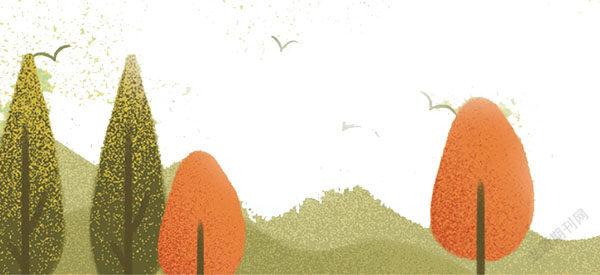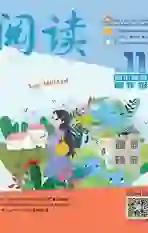美丽的农场
2021-03-08徐小红
徐小红


在山的这一边,有一个小小的农场。农场里住着小兔、小牛、小猪、刺猬,还有一群可爱的土拨鼠。蓝蓝的天,绿绿的草,香香的果子,甜甜的溪水……农场环境宜人,既美丽又安静。
The sun rises in the east and sets in the west. 太阳东升西落。
The farm is beautiful and quiet. 农场既美丽又安静。
Many animals live on the farm. 许多动物生活在这个农场上。
一般现在时,表示现在或经常发生的动作、存在的状态或习惯性动作的状态。
小兔:一般现在时表示经常性或习惯性的动作,常与表示频率的时间状语always, usually, often, sometimes, every等连用。如:
I eat carrots for breakfast every day. 我每天早餐吃萝卜。
We often play games on the grass. 我们经常在草地上做游戏。
刺猬:一般现在时表示现在的情况或状态。如:
I live by the stream. 我住在小溪边上。
We all love this farm. 我们都爱这个农场。
小牛:一般现在时表示永恒的真理、名言警句等。如:
The earth goes around the sun. 地球绕着太阳转。
Practice makes perfect. 熟能生巧。
小猪:在主语是第三人称单数(she, he, it等)的肯定句中,行为动词用第三人称单数形式。如:
Mr Pig sometimes sleeps all day. 猪先生有时一整天在睡觉。
Miss Rabbit grows carrots very well. 兔小姐萝卜种得很好。
Tips
动词第三人称单数的变化规则是这样的:
1. 多数动词直接加s。如:
like-likes, live-lives, speak-speaks, buy-buys, play-plays
2. 以辅音字母加s, x, sh, ch, o 结尾的动词,加es。 如:
do-does, go-goes, watch-watches, wash-washes
3. 以辅音字母加y结尾的动词,将y变为i,再加es。如:
study-studies, cry-cries, carry-carries
土拨鼠:当主语为第一人称、第二人称及复数时,助动词用do。如:
I don’t eat carrots for breakfast every day. (否定句)
我每天早餐不吃萝卜。
Do you often play games on the grass? (一般疑问句)
你们经常在草地上做游戏吗?
Yes, I do. 是的。
No, I don’t. 不是。
Where do you live? (特殊疑问句)
你住在哪儿?
小牛:当主语是第三人称单数时,助动词用does。如:
Mr Pig doesn’t sleep all day. (否定句)
猪先生不是一整天在睡觉。
Does Miss Rabbit grow carrots very well? (一般疑问句)
兔小姐萝卜种得很好吗?
Yes, she does. 是的。
No, she doesn’t. 不是。
Where does she live? (特殊疑問句)
她住在哪儿?
在山的另一边,住着山羊一家。回想当年,山羊爷爷身体还很硬朗的时候,他时常和小动物们漫步在农场的林间小道上,呼吸新鲜的空气,感受泥土的芬芳。白天,他们在农场上晒太阳,晚上大家在庭院里数星星,日子过得悠闲又自在。
The air was fresh and the sun was shining. 那时空气清新,阳光灿烂。
They walked along the path by the stream. 他们在小溪边的小道上散步。
They enjoyed themselves every day. 他们每天都很开心。
一般过去时,是表示过去某个时间发生的事情或存在的状态。
小兔:一般过去时常与yesterday, yesterday (morning, afternoon, evening...), last night (week, month, year ...), a moment ago, a week ago, two years ago, just now等表示过去的词连用。
Tips
动词过去时的变化规则是这样的:
1. 一般情况下,动词后面直接加ed。如:
work-worked, visit-visited, watch-watched
2. 以e结尾的动词,直接加d。如:
like-liked, love-loved, close-closed
3. 以辅音字母加y结尾的动词,把y变为i,再加ed。如:
study-studied, try-tried, cry-cried
4. 以重读闭音节或r音节结尾且末尾只有一个辅音字母的动词,要双写末尾的辅音字母再加ed。如:
stop-stopped, drop-dropped
5. 不规则动词过去式。如:
do/does-did, go-went, run-ran, swim-swam, drive-drove
山羊:关于一般过去时的用法,我总结了一首歌谣,大家快跟我一起念——
动词一般过去时,表示过去发生事。
句中谓语过去时,过去时间作标记。
否定句也很简单,主语后面didn’t 添。
疑问构成也有法,主语前把did加。
还有一点不能忘,后面动词要还原。
I went to the farm last Sunday. 上周日我去了农场。
I didn’t go to the farm last Sunday. 上周日我没有去农场。
Did you go to the farm last Sunday? 上周日你去农场了吗?
Yes, I did. 是的,我去了。
No, I didn’t. 不,我没去。
When did you go to the farm? 你什么时候去了农场?
Where did you go last Sunday? 上周日你去了哪儿?
What did you do last Sunday? 上周日你做了什么?
练一练
一、用所给单词的适当形式填空。
1. Her father__________(read) a newspaper last night.
2. Nancy often__________(go) to school by bus.
3. __________(do) you__________(play) the violin yesterday?
4. I __________(write) to my teacher every month.
5. He __________(go) out just now.
二、單项选择。
( )1. __________ you__________ your grandparents last weekend?
A. Did, visited B. Did, visit
C. Do, visited
( )2. __________Mike__________to the cinema every week?
A. Do, goes B. Does, goes
C. Does, go
( )3. I __________ to Sichuan and ate a lot of delicious food.
A. go B. goes C.went
